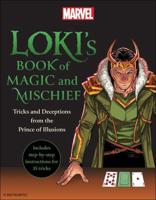Publisher's Synopsis
Limon begins with stand-up comics in the 1950s and 1960s-Lenny Bruce, Carl Reiner, Mel Brooks, Mike Nichols, Elaine May-when the norm of the profession was the Jewish, male, heterosexual comedian. He then moves toward the present with analyses of David Letterman, Richard Pryor, Ellen DeGeneres, and Paula Poundstone. Limon incorporates feminist, race, and queer theories to argue that the "comedification" of America-stand-up comedy's escape from its narrow origins-involves the repossession by black, female, queer, and Protestant comedians of what was black, female, queer, yet suburbanizing in Jewish, male, heterosexual comedy. Limon's formal definition of stand-up as abject art thus hinges on his claim that the great American comedians of the 1950s and 1960s located their comedy at the place (which would have been conceived in 1960 as a location between New York City or Chicago and their suburbs) where body is thrown off for the mind and materiality is thrown off for abstraction-at the place, that is, where American abjection has always found its home.












